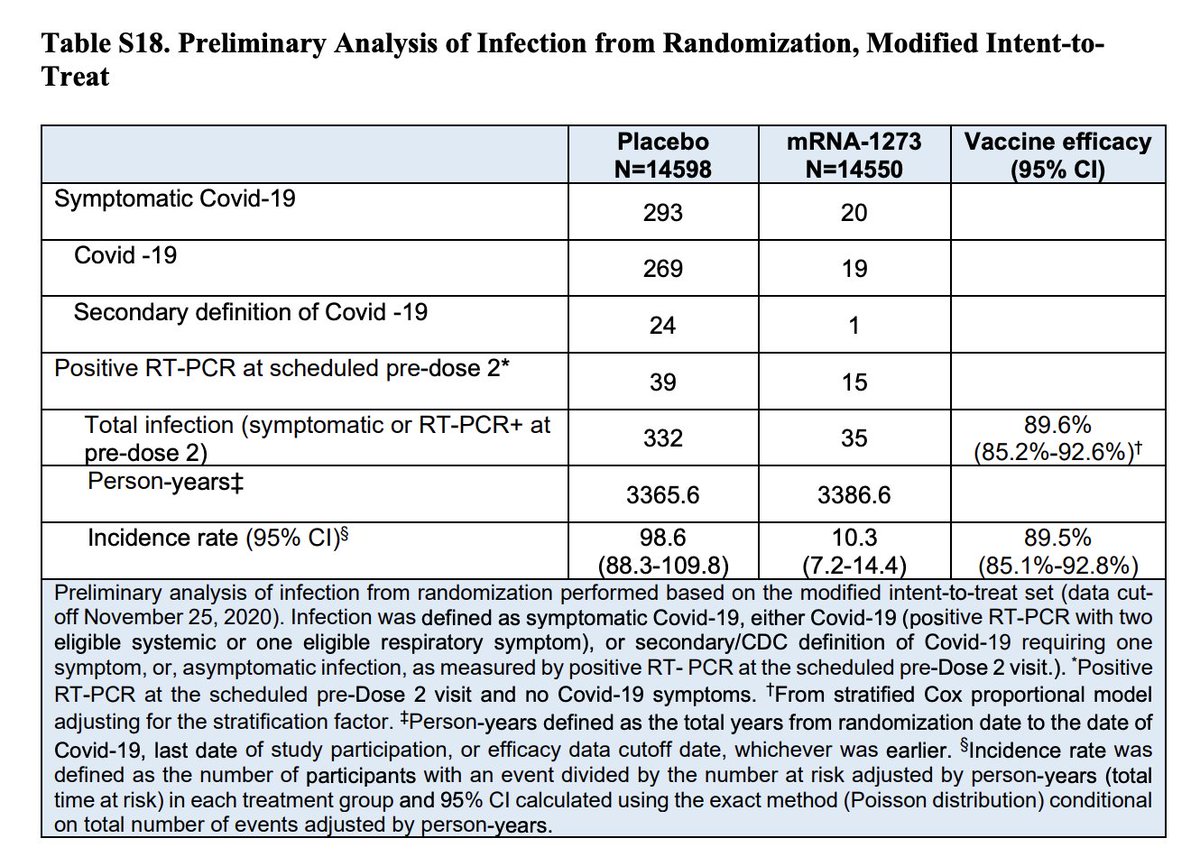Here is one more look at Supplementary Table 18 from the Moderna NEJM paper, the best direct data we have on this question.
Follow me here for a moment /1
/1
https://twitter.com/zeynep/status/1350586029359702016?s=20
Follow me here for a moment
 /1
/1https://twitter.com/zeynep/status/1350586029359702016?s=20
For the sake of argument, lets hypothesize that the mrna vaccines eliminate severe diz and reduce symptomatic disease w 95% efficacy, as suggested by this trial, BUT do nothing to reduce infection (/transmission).
If thats the case, all symptomatic infection would become asx /2
If thats the case, all symptomatic infection would become asx /2
If that's the case, what would we expect to see when the moderna investigators screened all asymptomatic people prior to vaccine #2 with pcr?
Either similar rates of pcr+ (if immunity not set in), OR higher rates of pcr+ in the vaccine group (since sx infection now asx) /3
Either similar rates of pcr+ (if immunity not set in), OR higher rates of pcr+ in the vaccine group (since sx infection now asx) /3
Instead, we see a REDUCTION in asx infection prior to dose 2:
symptomatic infections: 46 placebo, 7 vaccine (efficacy 85% 95% CI 66-93)
asymptomatic screening pcr+ 39 placebo, 15 vaccine (efficacy 61%, 95% CI 30-79%) /4
symptomatic infections: 46 placebo, 7 vaccine (efficacy 85% 95% CI 66-93)
asymptomatic screening pcr+ 39 placebo, 15 vaccine (efficacy 61%, 95% CI 30-79%) /4
The confidence interval is wide, yes, but (1) all shows reduction, not increase, in asymptomatic infection, which would be expected if sx infections just shifted subclinically & (2) remember this is before anyone even got the second dose, so ultimate efficacy is prob much higher
This is a tricky question, tell me how I'm thinking about this incorrectly @PaulSaxMD @sigal_md @IDDocJen @JenniferNuzzo @EricMeyerowitz @roby_bhatt @zeynep
and why this matters https://twitter.com/zeynep/status/1350590407118352387?s=20

 Read on Twitter
Read on Twitter


